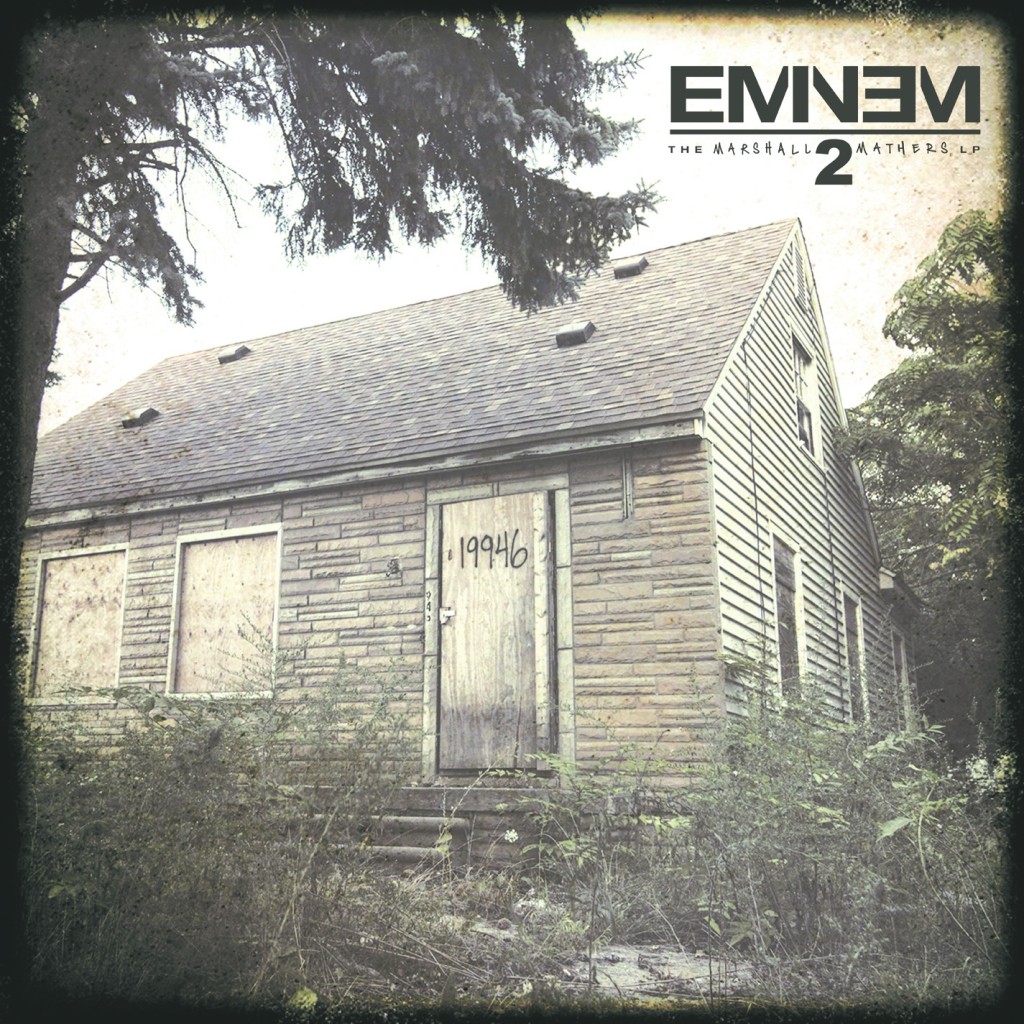
It’s been 14 years since Eminem released his landmark album, “The Slim Shady LP,” exposing his insane and controversial alter ego, Slim Shady, to the world. Since then, a lot has changed for Eminem in both music and style.
Eminem’s last few releases have been lacking in the free-spirited youthfulness that he captured early on in his career. Lyrically, he stopped going after every social taboo in the book. His music became more commercially driven, and his delivery transformed into short and loud bursts of words that lacked in content or creativity. It seemed as if the Slim Shady persona had been shelved for good and that there would never be a return of “old Eminem.”
But earlier this year, Eminem built hype for his new album by naming it “The Marshall Mathers LP 2” — a reference to his hit 2000 album “The Marshall Mathers LP” — and dying his hair blond again. In this new release Eminem attempts to recapture the sound and the success he had over a decade ago with a sequel to his hit album.
Eminem kicks off the album with the song “Bad Guy,” a sequel to his hit song “Stan” off the original “MMLP.” With this haunting seven-minute epic, Eminem sounds like he’s immediately back to form. It’s a song that shows off Em’s ability to tell a first-person story with multiple characters and voices.
Unfortunately, the rest of the album isn’t able to capture the same intensity and emotion exhibited on “Bad Guy.” Almost immediately, the album starts to go south with “Rhyme or Reason,” featuring a dozen out-of-date “Star Wars” references and a creepy Yoda impression. Stylistically, his flow and sound is similar to the original “MMLP” on a lot of the songs, but the content seems worn out and his jokes just aren’t funny. On “Asshole” he raps, “Shorty you’re fine but you sort of remind me of a 49er because you been a gold digger since you were a minor” in one of his many lame punch lines that he forces throughout the record.
Furthermore, he discusses some of the same topics that he has covered previously, this time with less impressive results. He goes after his dreaded ex-wife in the song “Stronger Than I Was,” saying, “A beautiful face was all you had, cause on the inside you’re ugly.” Bashing his ex is a common theme in Eminem songs, but on this album it seems like he does it with less passion than ever.
One of the album’s highlights and more endearing moments comes in the song “Headlights,” which shows a more emotional side of Eminem as he pays homage to his mother and apologizes to her for everything he has done to her. In an un-Eminem-like move, he brings closure to a relationship problem instead of just fueling more hatred into it. As he raps about his childhood and family life, it’s hard not to feel sentimental for Eminem and about the album itself. He brings things full circle in his life and makes amends with the past, something that a younger and angrier Eminem would never do.
Despite his efforts throughout the album, Eminem is not able to make a triumphant return to the top of the hip-hop world. He’ll probably never be the same rapper he was earlier in his career, yet none of this really matters on “The Marshall Mathers LP 2.” This album ultimately isn’t about reclaiming any former glory, but rather about Eminem bringing closure to his career. He may have fallen short in successfully reviving Slim Shady, but he can at least put the character to rest now knowing there is nothing remaining to say.
Grade: C-


